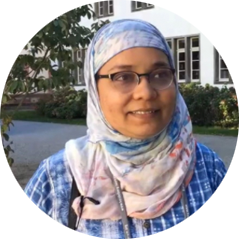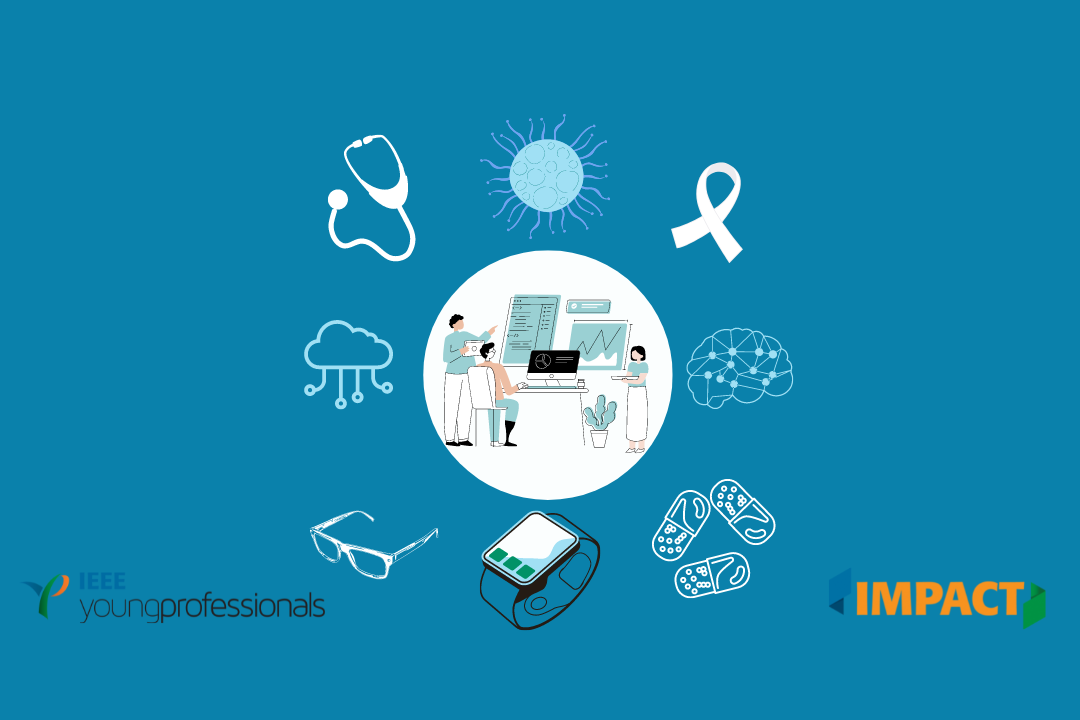Summary
This blog post explores the potential of artificial intelligence (AI) in oncology, including improving cancer diagnosis accuracy, predicting patient outcomes, and optimizing treatment decisions. Applications of AI in oncology include automated imaging, predictive modeling, biomarker analysis, clinical decision support, drug discovery, and wearable technology. While AI has the potential to improve cancer care, it should be used as a tool to support and augment human expertise.
Article by Noor E Karishma Shaik, Editor-in-Chief at IMPACT Blog
World Cancer Day is an annual global initiative held every 4 February that raises awareness of the disease, improves education, and coordinates individual, collective, and governmental action. Cancer is a leading cause of morbidity and mortality making healthcare professionals and researchers increasingly turn to technology for early diagnosis and personalized treatment. Oncology is a branch of medicine dedicated to understanding, diagnosing, and treating cancer. Its objectives include treating the illness or stopping its spread, as well as minimizing its symptoms and adverse consequences. It entails using a variety of methods to treat cancer and enhance the quality of life for the patients, such as surgery, radiation treatment, chemotherapy, and immunotherapy. Artificial Intelligence (AI) has the potential to revolutionize the field of oncology by improving the accuracy of diagnosis, predicting patient outcomes, and optimizing treatment decisions. With the rising demand for early cancer diagnosis and AI-based solutions, the oncology imaging software market is expected to reach US $4 billion by the end of 2023 [1]
IEEE technologists across the world are working towards a better world without cancer, where everyone has access to life-saving cancer treatment and care – no matter who you are or where you live. Leo Grady, the chief executive of Paige is working towards an AI-based medical diagnostic software for cancer pathology. At IEEE Spectrum, Grady vouches that IEEE Transactions on Pattern Analysis and Machine Intelligence, Medical Imaging, and Image Processing stand out as the highest excellence in technical journals in these spaces. He also says that IEEE Computer Vision and Pattern Recognition conference has been one of the earliest in its field and the only venue to showcase such research for a long time. After graduation from Boston University, Grady browsed issues of the IEEE Transactions on Pattern Analysis and Machine Intelligence, looking for research articles authored by experts in the industry for finding a job with a meaningful impact [2].
Some of the applications of AI in oncology include:
- Automated Imaging: AI algorithms can be trained to analyse medical images, such as mammograms or CT scans, and identify potential signs of cancer. This can help radiologists to detect cancers that may be missed during manual analysis. For example, Scott Doyle et. al. investigated image-based metrics like morphological, and textural features on existing tissue sample images to detect prostate cancer [3].
- Predictive modelling: AI algorithms can be used to analyse patient data, such as demographics, lifestyle, and medical history, to predict a person’s likelihood of developing cancer. This information can be used to identify individuals who may benefit from early screening and intervention. A team of researchers at Google AI have demonstrated a deep learning-based algorithm for screening lung cancer which was more accurate than radiologists at detecting tumours and malignant growths in CT scans [4]. Recently, Muntasir et. al. proposed new ensemble learning techniques based on a survey dataset of 309 people for predicting lung cancer [5].
- Biomarker analysis: AI is a step forward in biomarker discovery and integration towards improved cancer diagnosis and treatment. AI can be used to analyze large amounts of biological data, such as blood tests or tissue samples, to identify biomarkers associated with cancer. This information can be used to develop new diagnostic tests or improve the accuracy of existing tests. Researchers at Harvard Medical School achieved pathologist-level performance on three-class categorical tumor severity prediction with breast cancer histological images towards specific biomarker identification [6].
- Clinical Decision Support: AI also helps doctors plan therapy and forecast how well a patient is likely to hold up to the effects. They can also be integrated into electronic health records to provide physicians with real-time recommendations for diagnosis and treatment. This helps doctors in providing personalized treatment as well as begin to look for alternatives earlier in the treatment process if necessary. The Cleveland Clinic has started using AI to personalize patient treatment plans. The AI model used by the clinic works with a combination of medical records and patient health history, along with CT scans. It builds customized programs for each patient based on a mathematical model that estimates how well they would respond to certain treatments [7].
- Drug discovery: AI can be used to analyse large amounts of data from various sources, such as genomic data, to identify new targets for developing anticancer drugs or to predict their activity [8]. Further, AI can enhance chemotherapy management ranging from drug use to tolerance prediction. New AI-based methods to identify unique genetic changes in tumours to empower precision oncology. Personal Genome Diagnostics (PGDx), spun out of Johns Hopkins University, develops proprietary algorithms to identify alterations in cancer genomes [9].
- Wearable technology: AI can be integrated into wearable devices, such as smartwatches, to monitor changes in a person’s vital signs and detect early signs of cancer. Cancer treatments are also associated with toxicity, which can negatively affect outcomes. These issues can be tracked with mobile health technology such as physical activity monitors for effective remote care [10].
AI-based cancer diagnostics is still at the nascent stage with researchers working towards regulations and approvals to bring it to clinic. Overall, AI has the potential to significantly improve the quality and efficiency of cancer care by providing faster, more accurate diagnoses and more personalized treatment options, but it is important to note that AI should be used as a tool to support and augment, not replace human expertise.
References:
- https://www.futuremarketinsights.com/reports/oncology-imaging-software-market
- https://spectrum.ieee.org/ai-diagnosis-cancer
- Doyle, S., et al, “Automated grading of prostate cancer using architectural and textural image features,” 2007 4th IEEE International Symposium on Biomedical Imaging: From Nano to Macro, Arlington, VA, USA, 2007, pp. 1284–1287. https://doi.org/10.1109/ISBI.2007.357094
- Ardila, D., et al, End-to-end lung cancer screening with three-dimensional deep learning on low-dose chest computed tomography. Nature Medicine 25, 2019, pp. 954–961. https://doi.org/10.1038/s41591-019-0447-x
- Mamun, M., et al. “Lung cancer prediction model using ensemble learning techniques and a systematic review analysis.” 2022 IEEE World AI IoT Congress (AIIoT). IEEE, 2022, pp. 187–193. https://doi.org/10.1109/AIIoT54504.2022.9817326
- Shah, M., et al. “Deep learning assessment of tumor proliferation in breast cancer histological images,” 2017 IEEE International Conference on Bioinformatics and Biomedicine (BIBM), Kansas City, MO, USA, 2017, pp. 600-603. https://doi.org/10.1109/BIBM.2017.8217719
- https://spectrum.ieee.org/ai-for-cancer-treatments
- https://www.personalgenome.com/
- https://spectrum.ieee.org/machine-learning-tool-can-spot-mutations-in-tumors
- https://spectrum.ieee.org/the-first-frontier-for-medical-ai-is-the-pathology-lab
Article Contribution: Noor E Karishma Shaik (Editor-in-Chief, IMPACT Blog) is currently working as Academic Researcher at University of Melbourne. 






